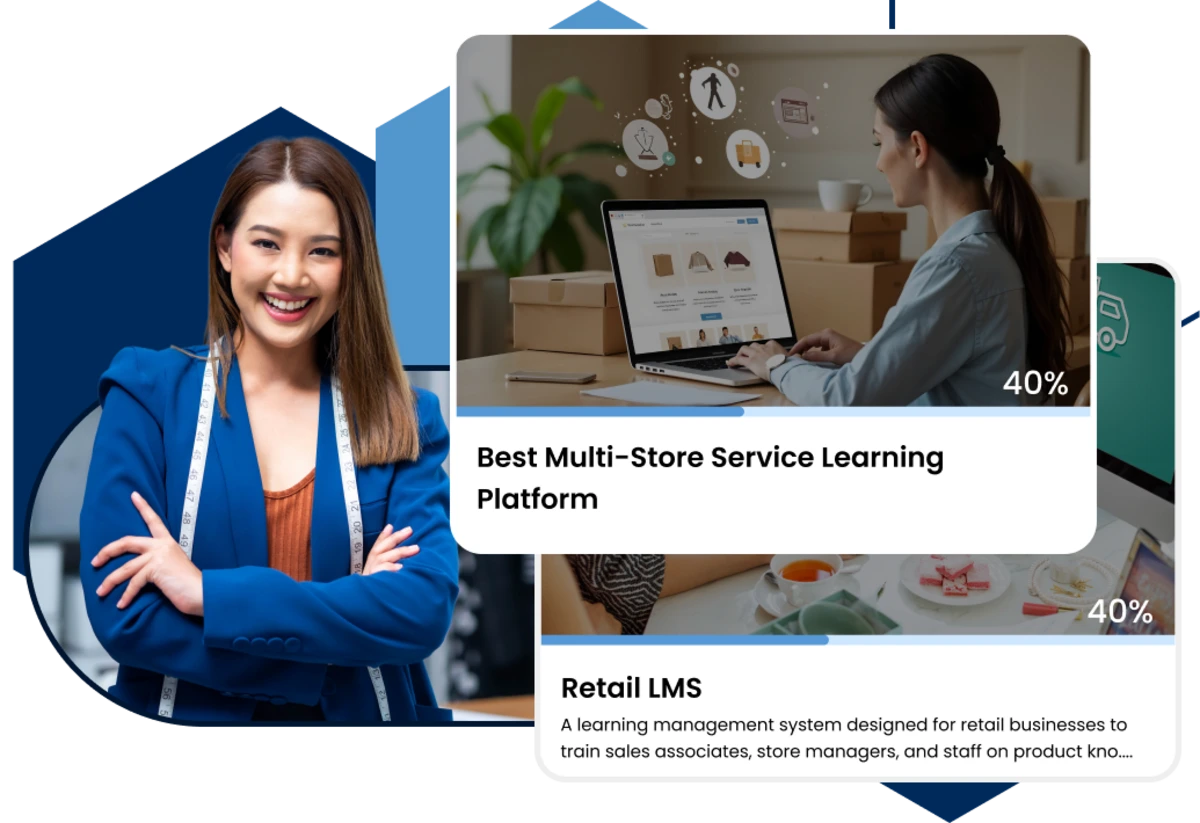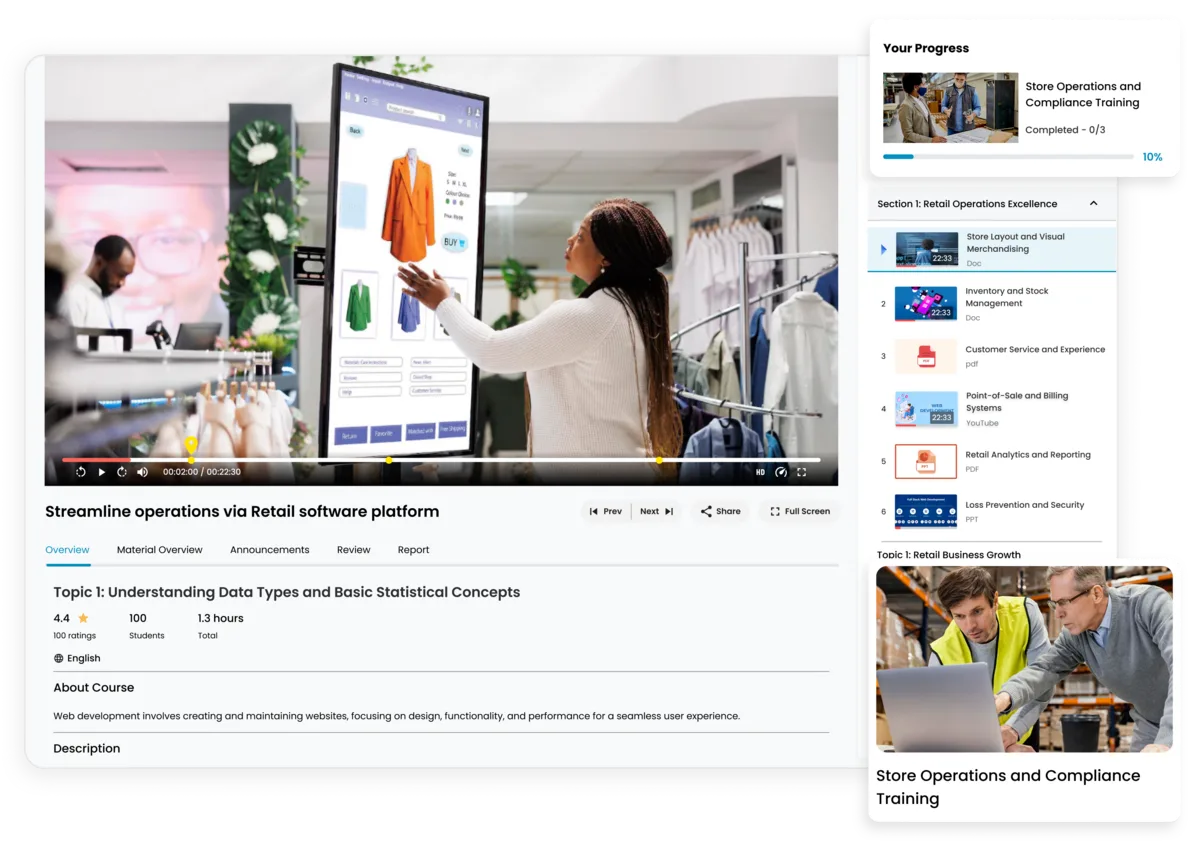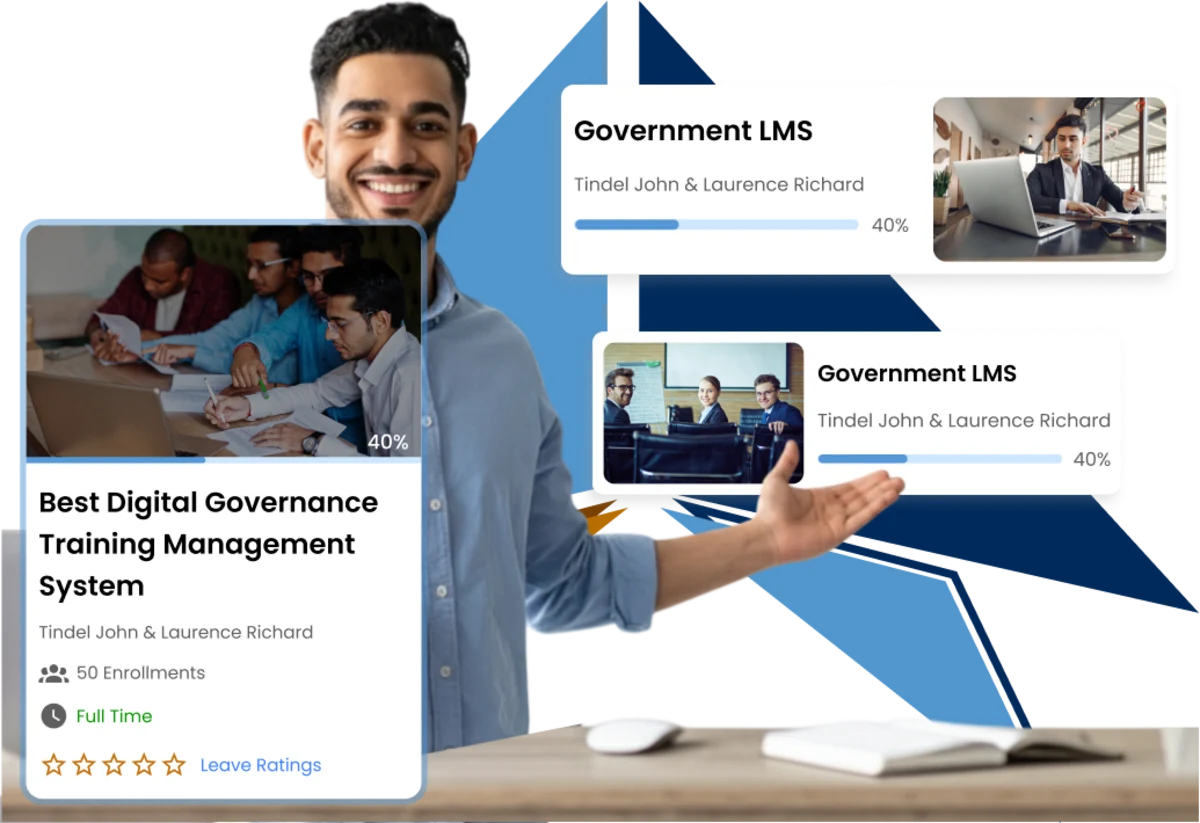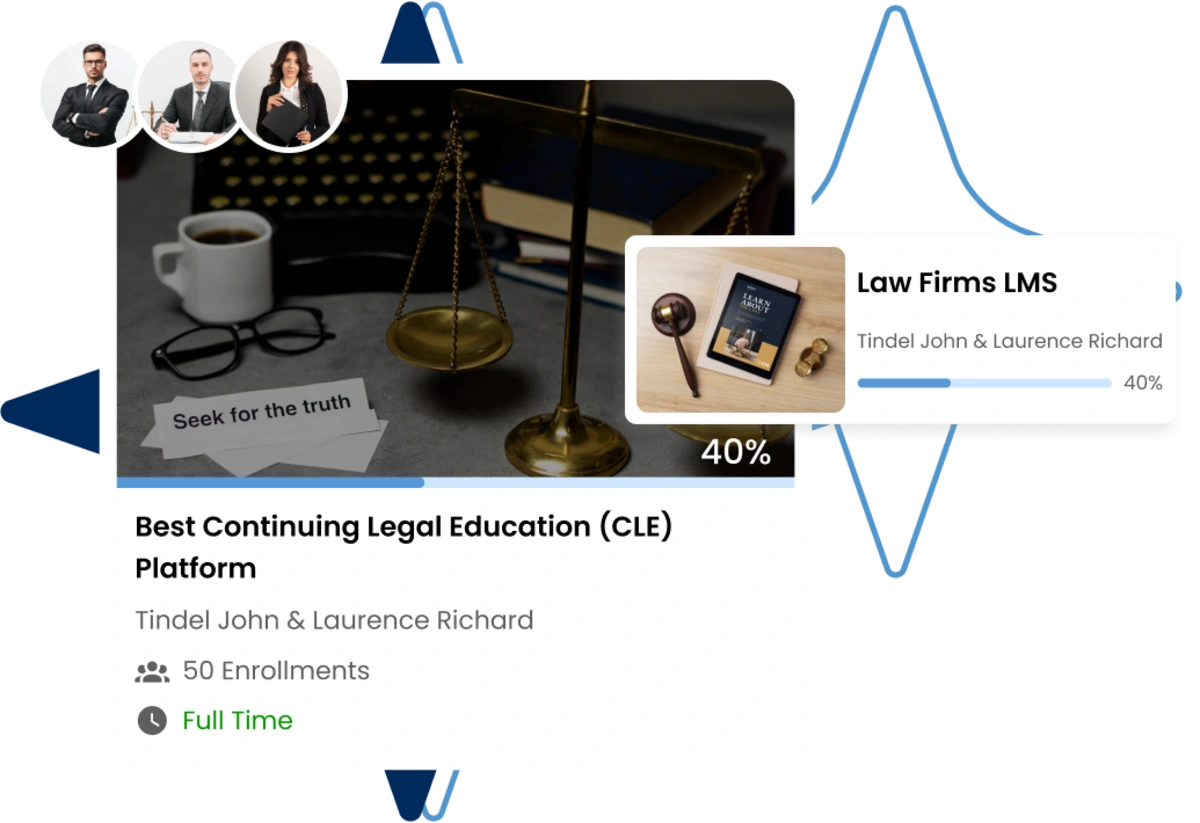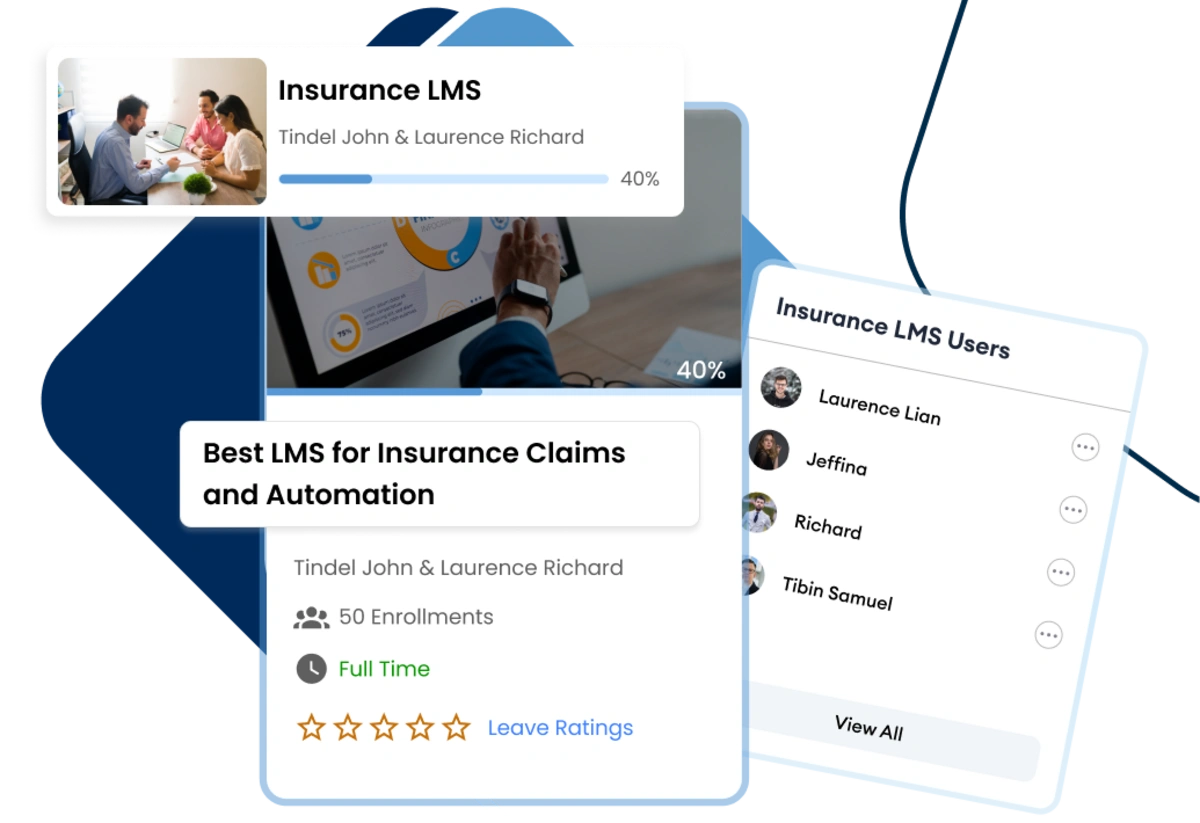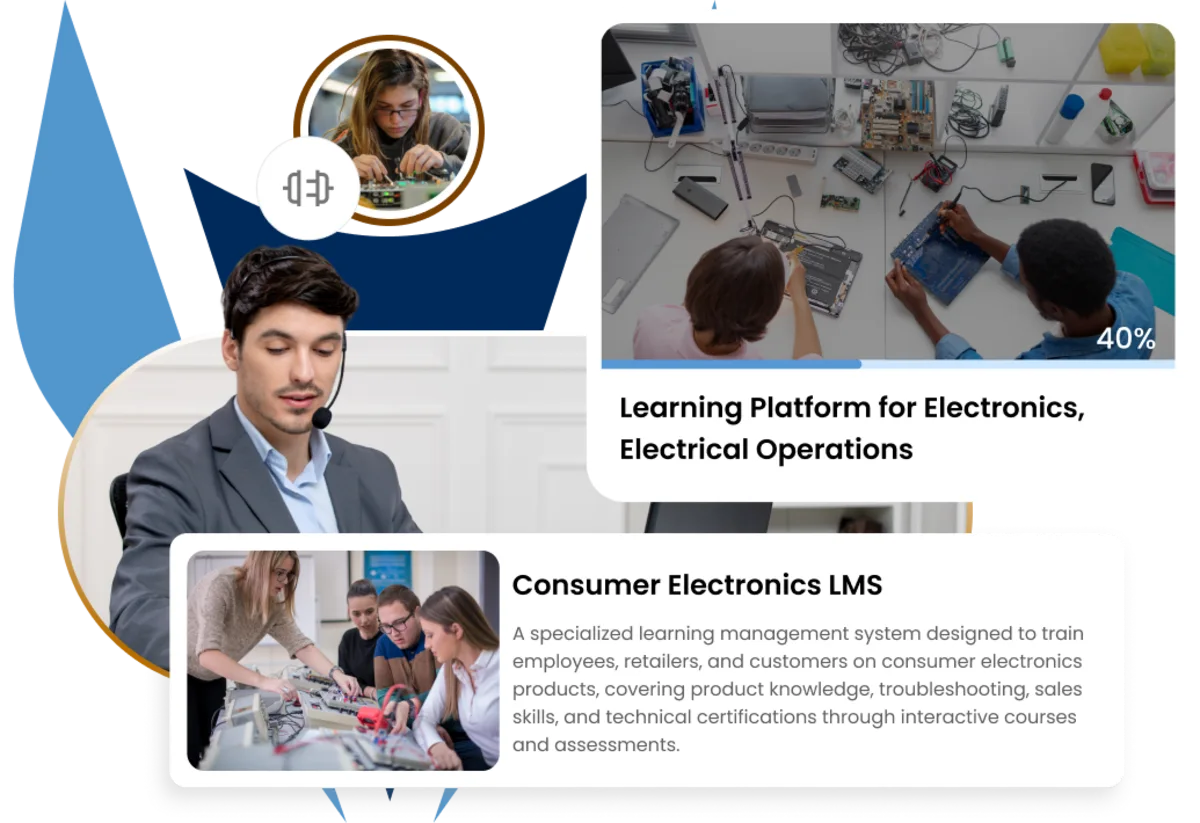Elevate Retail Teams with e-KHOOL
Transform your retail operations with e-KHOOL LMS. Upskill store associates, streamline training, boost sales performance, and ensure consistent service excellence across all teams and locations
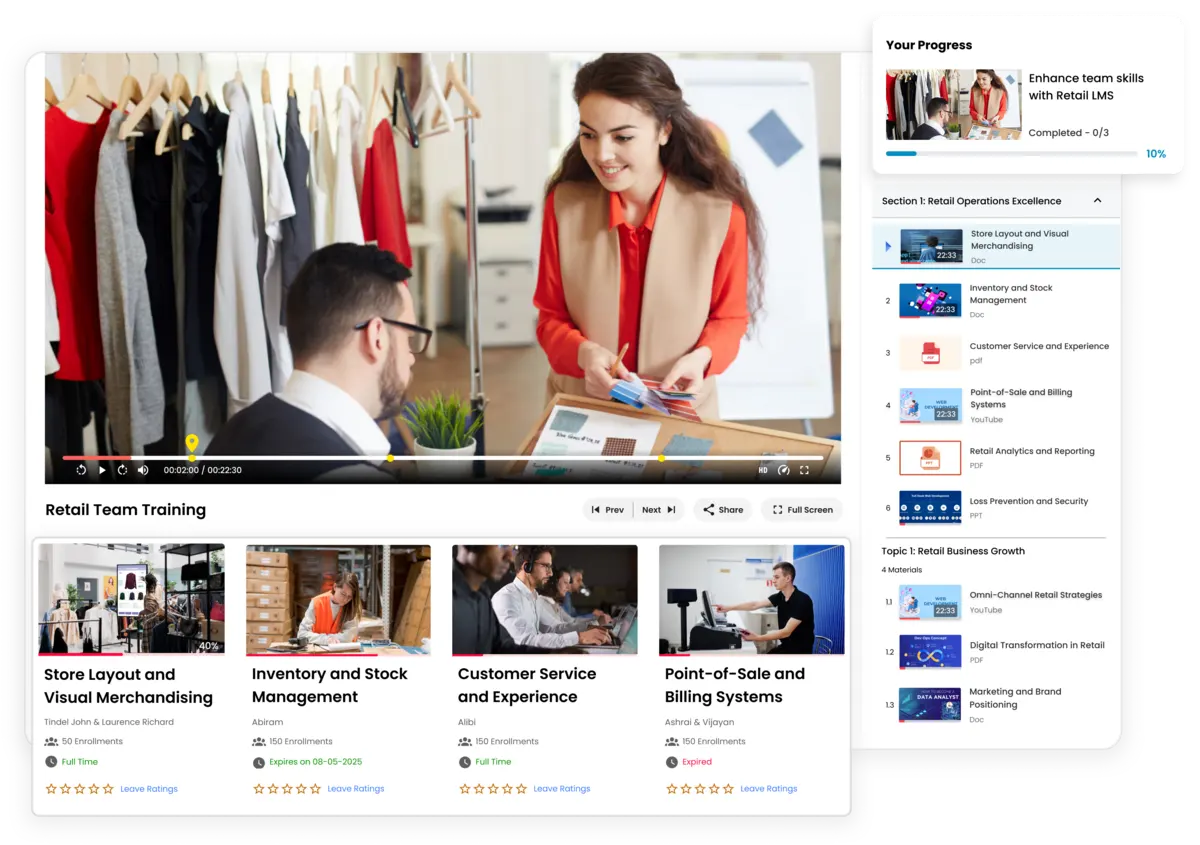
Store Associates & Sales Teams
e-KHOOL empowers associates to deliver superior product knowledge, upselling, and customer service through an intuitive LMS for Retail, boosting daily performance.
Store Managers & Supervisors
With e-KHOOL, managers can track team progress, coach effectively, and maintain standards using a robust LMS for the Retail Sector.
Merchandising & Inventory Teams
Streamline stock management, ensure compliance, and optimize merchandising operations through LMS for the Retail Industry which enables smarter decision making.
Regional/Area Retail Leads
Drive consistency across stores, implement best practices, and enhance operational efficiency with the Best Retail LMS Software, powered by e-KHOOL.
Smart Training solution for retail industry Using e-KHOOL LMS
Retail training covers key areas like inventory management, customer service, and sales while reducing operational costs, errors, and workplace hazards for both company and staff.
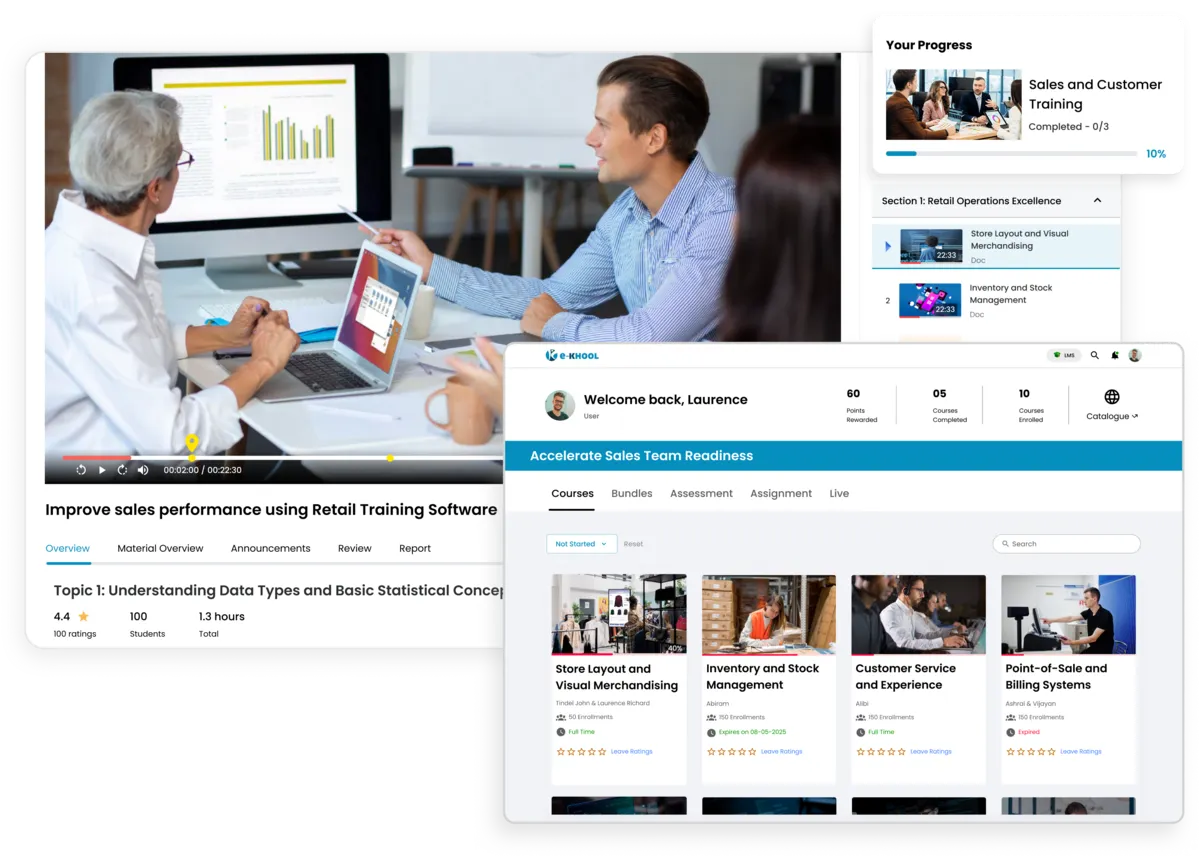
Experience the advantages of e-KHOOL’s Retail LMS
e-KHOOL’s Retail LMS empowers teams with data-driven learning, faster onboarding, stronger collaboration, and consistent performance across every store and retail function.
Increased Customer Satisfaction and Loyalty
With e-KHOOL’s Retail LMS, staff deliver exceptional customer service, manage complaints, upselling and cross-selling creates memorable experiences that build long term customer loyalty.
Improved Sales Performance and Profitability
Training through e-KHOOL LMS boosts employee confidence and product knowledge, leading to higher conversion rates, increased basket sizes, and stronger overall sales performance.
Enhanced Employee Engagement and Retention
The e-KHOOL’s Retail LMS encourages continuous learning and career growth, helping employees feel valued and motivated by improving retention and building a culture of development.
Reduced Costs and Operational Risks
Through structured compliance and policy-based training, e-KHOOL minimizes errors, prevents accidents, and ensures adherence to retail regulations, saving costs and protecting brand reputation.
Results Achieved Through e-KHOOL LMS in Retail
e-KHOOL LMS for retail industry helps faster onboarding, high employee retention, improve customer experience and measurable growth in sales performance across all store levels.
40%
Increased retention among associates and managers by e-KHOOL LMS.
25%
Retailers report increase in upselling and cross selling after role based sales training.
30%
Decrease in inventory discrepancies and compliance lapses with e-KHOOL LMS.
